Author: Greg Bloom
-

Our 2025 Year in Review
Open Referral’s Year in Review for 2025 is out now. You can read through it here (and you can browse every Annual Report since 2014 here). This was a really difficult year, and I think it’s important for us to … Continue reading →
-

Introducing Open Referral’s Data Collaboration Toolkit
Open Referral’s data exchange standards enable different organizations to share resource directory data among different information systems. This makes it possible for communities to ensure that knowledge about the resources available to people in need can be efficiently managed and … Continue reading →
-
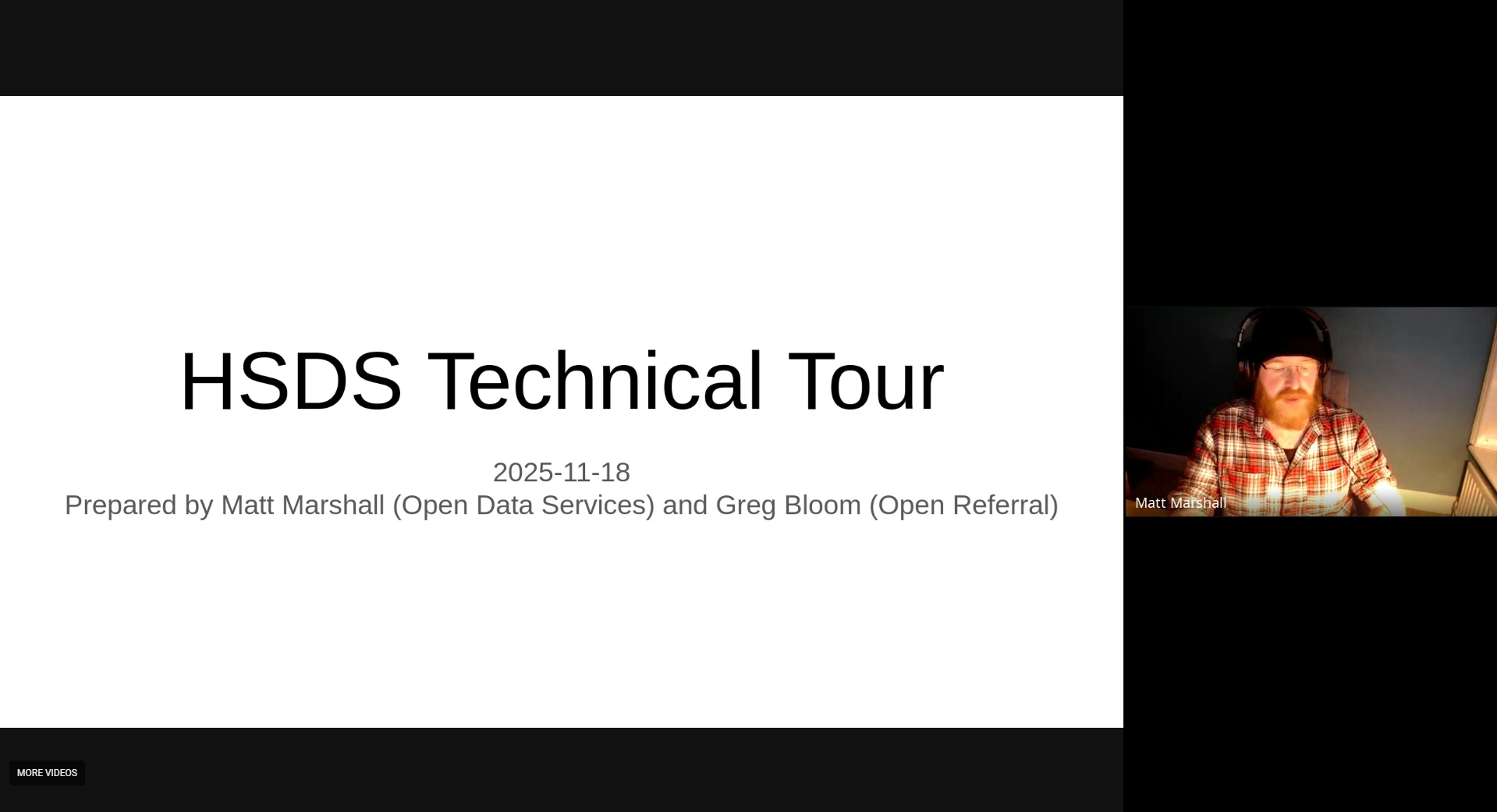
Video: an introduction to the Human Service Data Specifications
Open Referral’s Technical Committee has several new members who have recently come onboard, so we organized an introduction to the Human Service Data Specifications – and recorded it, so that this conversation might be helpful to anyone looking to learn about … Continue reading →
-
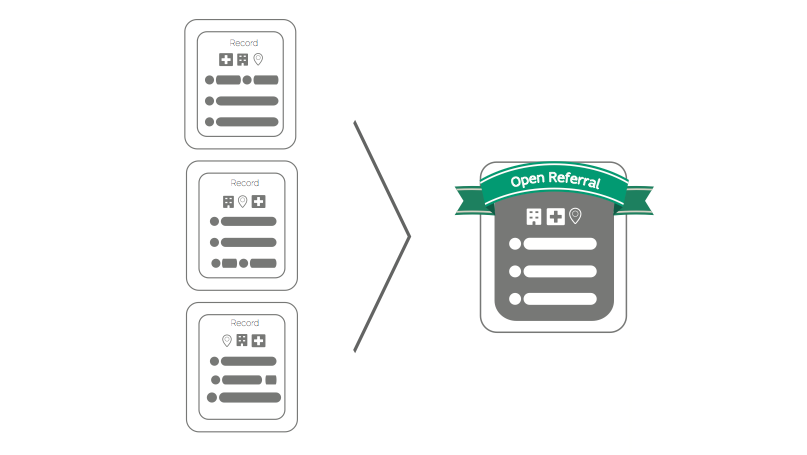
HSDS version 3.2, and documentation upgrade
First off, some official business about HSDS: Upgrade to Human Service Data Specifications: version 3.2 Our Technical Committee has put forth a set of proposed changes that our Technical Steward has bundled into a minor specification upgrade – as announced in … Continue reading →
-

Our 2024 Year in Review
In this report, we summarize all of the significant steps forward in the past year, from a new version of our standards, upgrades to our governance model, and breakthroughs in business strategy across the human service informatics sector. Read more here in the report. Continue reading →
-
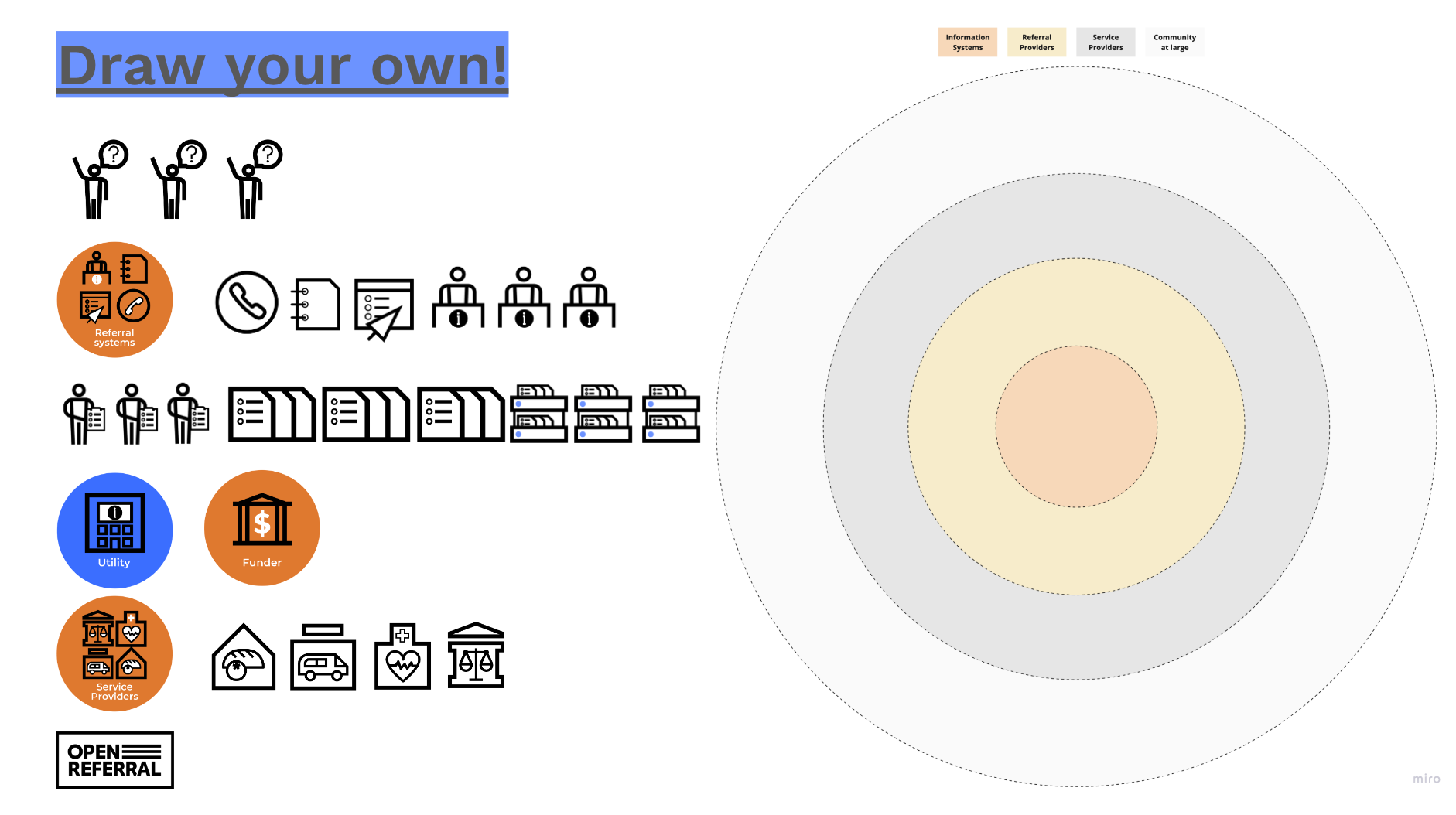
Envisioning cooperative resource directory information infrastructure in Minnesota
Minnesota residents can look for information about a range of human services on MinnesotaHelp.Info®, a resource navigation program supported through partnership among several public entities (including the state’s Department of Human Services and Board on Aging). Minnesotans can also look for information about human services via 2-1-1, which is operated by United Ways of Minnesota…
-

Upgrading our Governance: Introducing the Open Referral Standing Technical Committee
[EDITOR’S NOTE: Open Referral’s new standing technical committee wants to hear from members of our community about your priorities and feedback. Please take a few minutes to complete this survey– your input can help us shape our roadmap for the year … Continue reading →
-
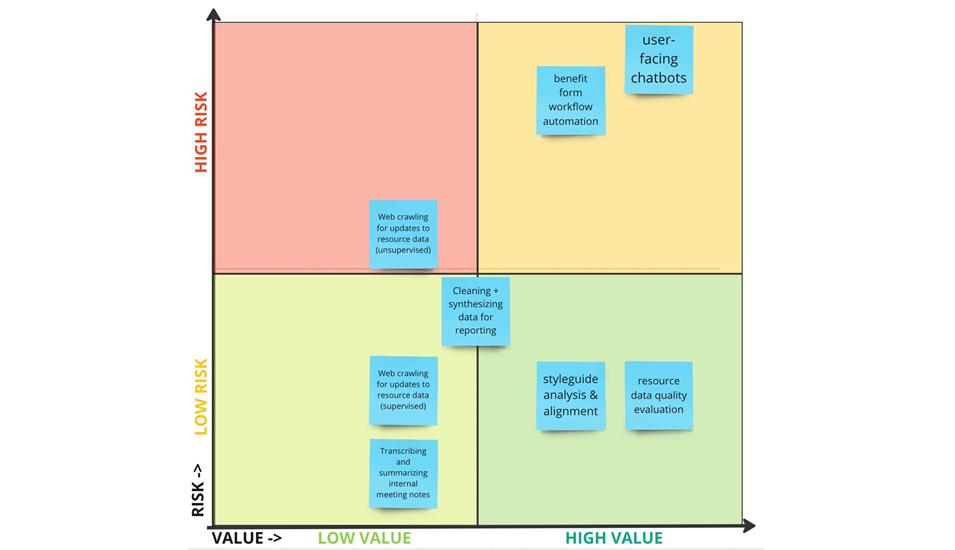
The Risks of AI in I&R Part 2
This is the second post in a series about the Risks and Opportunities of AI in I&R. My first post considered the long, disappointing history of “algorithmic technologies” in human service sectors. In this post, we’ll examine the specific kind of … Continue reading →
-
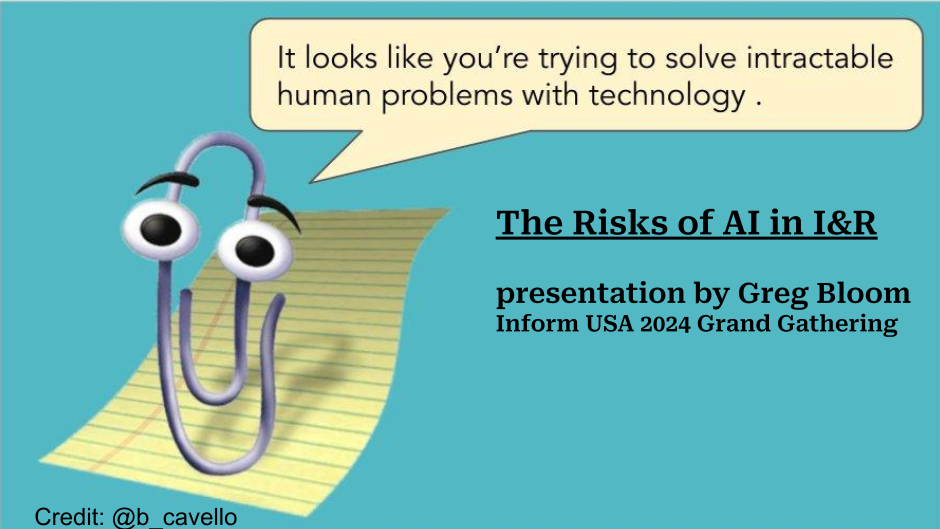
The Risks of AI in I&R – Part 1
Last month I presented at the 2024 Inform USA Grand Gathering in Grand Rapids Michigan, and my session – the Risks of AI in I&R – was probably the most popular I’ve delivered in 10 years of these conferences. So I’ll relay a summary here, in a series of posts. Continue reading →